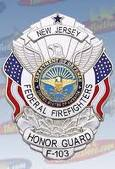The Defense Department is dropping plans to convert employees represented by labor unions to its new personnel system, at least for now, the program's top personnel official said Monday.
Brad Bunn, program executive officer for the National Security Personnel System, told Government Executive that the current Defense leadership has no plans to extend its pay for performance system to employees in bargaining units.
"We haven't come out and made a declarative statement that we'll never bring them in," Bunn said. "We could accommodate, but what we're being clear with now is that we have a departmental position that we're not bringing them in."
Bunn was responding to questions about new regulations governing NSPS that were published Friday and drew widespread criticism from federal unions. Those regulations bring NSPS in compliance with federal rules covering such subjects as labor relations, adverse actions and employee appeals. Congress mandated the changes in the fiscal 2008 Defense Authorization Act after years of litigation by federal unions against the department's proposed rules for the system.
But with no current plans in place to convert bargaining unit employees to the system, Bunn said, the labor relations provisions of the new rules would apply only to employees who form a bargaining unit after converting to NSPS. The American Federation of Government Employees said Friday that they currently represent about 300 such employees.
About 270,000 white-collar Defense employees are represented by labor unions. The department has added more than 181,500 non-bargaining unit employees to NSPS since 2006 and plans to bring an additional 20,000 into the system this fall, bringing it close to converting all 205,000 non-bargaining unit employees.
AFGE officials said Friday that the final regulations do not fully comply with federal labor law, largely because provisions defining employees' rates of pay are too specific and therefore narrow the scope of bargaining.
Bunn said that several unions expressed concerns about the rate of pay definition during the comment period, and while Defense deleted a portion of the definition in the final rules, it was still necessary to fully define the concept. He added that while unions will be unable to negotiate actual rates of pay, they can bargain over the procedures used to make those decisions.
"We did address and accommodate [the union's] concern, but we still felt strongly that we needed to have a definition of rate of pay," Bunn said. "There's no universal definition in our statute or regulations, and it's used in various ways in federal regulations."
Bunn added that Defense will follow traditional federal labor law and will use the standard rulemaking process to make any changes to the system. "I would not characterize it as any different from collective bargaining in other agencies," he said. "We made the regulations more robust to capture the need for uniformity and consistency ... but they do not preclude [following federal labor law]."
Rep. Ike Skelton, D-Mo., and Sen. Carl Levin, D-Mich., chairmen of the House and Senate Armed Services committees, sent a letter Sept. 10 to Deputy Defense Secretary Gordon England, urging the department to refrain from finalizing the rules until a new administration had the opportunity to review them.
"We strongly believe that the proposed regulations go beyond the intent of the revisions made to NSPS in the [defense authorization measure] for fiscal 2008," the chairmen wrote. "The intent of this legislation was to restore the collective bargaining rights of DoD employees."
But Bunn said it was necessary to implement the regulations in order to align NSPS with the 2008 law. "We needed to make sure that NSPS itself is on a stable regulatory base," he said, "meaning we have the law, the enabling regulations and internal policies operating in tandem."
Bunn also pointed to additional changes to the regulations that were not mandated by Congress, including a provision that requires individual agencies to share aggregate pay pool results -- including average ratings and payouts -- with NSPS employees. The final rules also provide a roadmap for managers in making pay and rating decisions, he said.
"We put parameters to tell managers, 'if you're going to make [payout and ratings] decisions, here's what you have to consider," Bunn said. "Personal bias and favoritism are prohibited, but managers should communicate to employees that these decisions are based on performance, the job or how the organization is approaching compensation."














